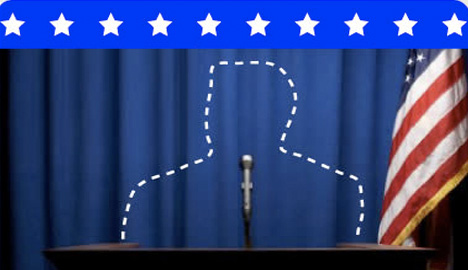Save the Internet!
The Internet is becoming the town square for the global village of tomorrow. — Bill Gates

By the end of 1969, four computers worldwide made up the Internet.
By the mid-1980s, this “networking system” had expanded to dozens of universities as it let scholars easily search and collaborate on research all across the country.
In 1992, the first web browser (i.e., Netscape) was developed, allowing people everywhere to access this “World Wide Web.”
And exactly 25 years later, we have the Internet as it is: One of the most widespread, influential, and humanity-advancing inventions of all time.
But now, it’s in imminent danger.
THE LOOMING THREAT
Currently, the Internet is treated like electricity to one’s home: No matter what the appliance is or who makes it, every time you plug into an outlet, all appliances have equal access to electricity.
However, now imagine that a company like Samsung is given control over how that electricity is distributed in your household. That is, they’re allowed to determine, as they please, the rate and amount of electricity that is delivered to specific appliances.

As another example, imagine there’s a new cellphone that comes out (not made by Samsung) which is better than any phone Samsung makes. Rather than innovate their own product, Samsung can simply decide to slow all electricity to that new cellphone, effectively making it useless.
In parallel, if “Net Neutrality” (i.e., Internet freedom) is eliminated, my “example with electricity” will actually happen to the Internet.
That is, big Internet Service Providers (ISP’s; e.g., Verizon) are trying to take control of the Internet, meaning they can decide which websites get fast Internet and which ones are slowed. For example, if a website financially competes with (e.g.) Verizon, or maybe a website has a political agenda different than Verizon’s, Verizon will be able to cut your access to those sites.
Net Neutrality, then, represents the Internet as it currently is: free, equal, and open to those who use it.
WAIT, WHO OPPOSES NET NEUTRALITY THEN?
Ajit Pai, the current head of the FCC, wants to kill Internet freedom—but why would he? One clue might be the fact that he was previously a lawyer and lobbyist for Verizon, a company who would benefit financially if net neutrality was eliminated.

Moreover, the eight Congressmen who primarily oppose Internet freedom have received over $4.5 million in “donations” from telecom companies.
So to answer the question of who opposes internet freedom, people fall into two camps: 1) those who don’t understand it, or 2) those who are actively paid to destroy it.
WHO’S FIGHTING TO KEEP YOUR INTERNET FREE?
Today, July 12th, is Internet Freedom Action Day, the inspiration for today’s post. Indeed, companies like Google, Facebook, Amazon, Apple, and more all support Internet freedom (i.e., net neutrality). For importantly, this is not a “politically partisan” issue. Without net neutrality, ISP’s will be able to censor, slow down, or even extort sites that disagree or challenge the ISPs in anyway.

For example, AT&T was blocking Internet access to Skype because it competed with their own video chat services. AT&T, Sprint, and Verizon blocked access to Google Wallet because it competed with those companies’ own payment apps. In fact, Verizon itself literally stated in the courtroom that the only thing stopping them from favoring certain content over others were the net neutrality rules currently in place.
So, if you want to help keep the Internet free (and continue to receive unimpeded access to websites like this very one you’re on), go ahead and join the protest here or go to the FCC itself and quickly file your own support for net neutrality.
Freely,
jdt
Everyday Psychology: Still looking for some psychology in today’s post? Research (back in 2007) found that for every increase in 100ms of load time on Amazon, sales decreased by 1%. Another study showed that web pages with slower load times are perceived to be of lower quality and possess less credibility. In fact, slower web pages even increase one’s own blood pressure! So not only is net neutrality good for society, it’s beneficial for your own health!
For more info on Net Neturality, check out these other resources:
A very funny video that explains Net Neutrality
Bouch, A., Kuchinsky, A., and N. Bhatti, “Quality is in the Eye of the Beholder: Meeting Users’ Requirements for Internet Quality of Service,”in CHI 2000 (The Hague, The Netherlands: April 1-6, 2000), 297-304
Kohavi, R., and R. Longbotham, “Online Experiments: Lessons Learned,”Computer 40, no. 9 (2007): 103-105.
Scheirer, J., Fernandez, R., Klein, J., and R. Picard, “Frustrating the user on purpose: a step toward building an affective computer,”Interacting with Computers 14, no. 2 (2002): 93-118.







